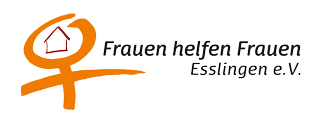In acute cases of domestic violence, the women concerned, or external persons, e.g. neighbours, can call the police. The police can evict the perpetrator, i.e. he must leave the apartment immediately and hand over the apartment key for a certain period of time.
The police can evict any violent offender from the apartment, regardless of who is on the rental agreement or who owns the apartment or house. In Esslingen, the public order office can set an eviction period from the home for up to 14 days depending on the risk.
Further possible steps
In justified cases, a restraining order and contact ban can also be issued. The perpetrator is prohibited from approaching the woman or making contact with her. Eviction from the residence can be extended under certain circumstances. A woman affected by violence can apply for protection orders under the Violence Protection Act at the legal application centre of the local court or through a lawyer, e.g. allocation of the (marital) home for sole use.
Offers of help at the Intervention Centre
In the home, the affected woman is asked by the police whether she would like help from our intervention centre. If she does, the signed declaration of consent will be faxed directly to us by the police.
After receiving the fax, we will contact the woman concerned within the next three working days. Initial questions can be answered and important information given over the phone. If a woman wants a consultation, an appointment will be made as soon as possible.
The consultations are partisan towards the women, open-ended and without pressure.
Content of post-eviction consultations
The aim of the counselling is prompt, intensive support work, which includes building protection and security for women and their children.
It serves to stabilise the situation and to develop strategies for action.
Employees inform the person concerned about the Violence Protection Act and the possibility of a criminal complaint. They support women in case of uncertainties or decision-making processes, with their needs and goals prioritised.
Staff support them in coming to terms with the violence they have experienced. Advice is also given to women who want to return to their partner. Topics such as security measures, contact points for couple conversations, etc. play a role. We also provide information on legal issues related to separation and divorce. In addition to psychosocial support, with the consent of those affected, “bridges” may be built to further advice and other help systems.
Furthermore, employees of the women’s intervention centre accompany women to offices, lawyers, and court hearings if desired.
Women who feel threatened in their home despite the eviction of the violent man, can still seek protection in a women’s refuge. In these cases the intervention centre will arrange a place in a women’s shelter for the woman and her children.
In addition, the intervention centre, like the counselling centre, also serves as a contact point for friends, relatives, neighbours and colleagues of the person concerned.


